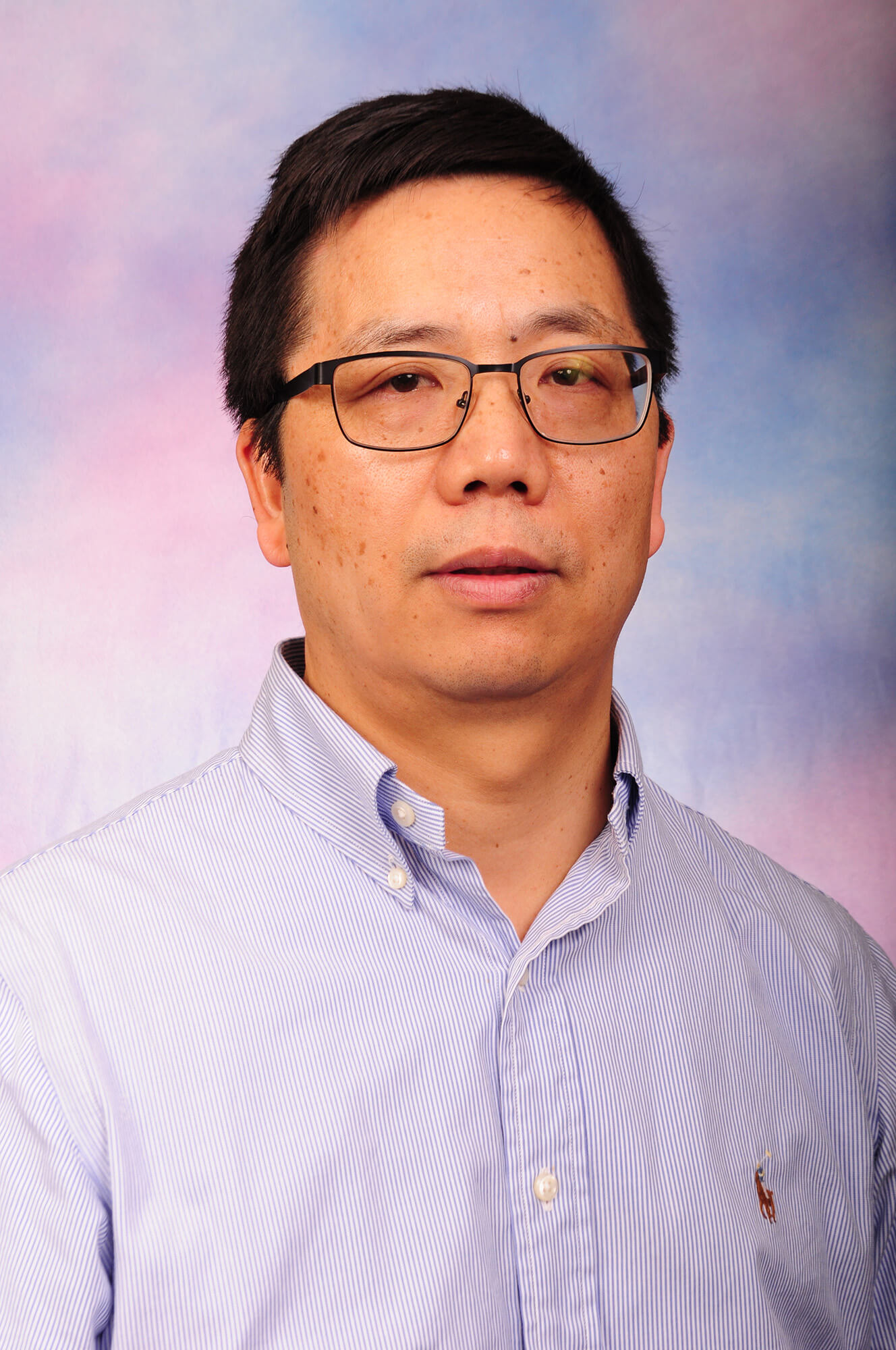ONC201, now called dordaviprone, was co-discovered by Dr. Wu about 20 Years Ago
For Gen Sheng Wu, Ph.D., a member of the Molecular Therapeutics Research Program at the Barbara Ann Karmanos Cancer Institute and professor in the Department of Oncology and Pathology at Wayne State University School of Medicine, witnessing the research he began 20 years ago lead to a newly approved cancer treatment is a dream come true.
ONC201, now renamed dordaviprone (ModeysoTM), was approved by the U.S. Food and Drug Administration (FDA) on August 6, 2025, to treat a rare and aggressive brain cancer. The foundation for this breakthrough can be traced directly to discoveries that began in Dr. Wu’s laboratory.
“As a basic cancer research scientist, I have dreamed of discovering a drug that could be used to treat patients. Seeing my work eventually lead to a new drug available for treating H3K27M-mutant diffuse midline gliomas—a very aggressive form of brain tumor for which there was previously no treatment option, particularly affecting children and young adults—seems like a dream come true,” Dr. Wu expressed.

The Foundation
As a postdoctoral fellow at the Howard Hughes Medical Institute, University of Pennsylvania, Dr. Wu discovered a gene called DR5, which plays a key role in helping certain cancer drugs kill cancer cells through a natural process called programmed cell death. Around the same time, other researchers were studying a protein called TRAIL, which selectively kills cancer cells while sparing healthy ones.
Dr. Wu and his collaborators discovered that DR5 functions as a “death receptor” for TRAIL, making both highly promising targets for cancer therapy. This discovery led to further research into utilizing TRAIL as an anti-cancer therapy on its own and developing antibodies that could target TRAIL receptors to trigger cancer cell death.
Focus on Triple-Negative Breast Cancer
When Dr. Wu joined Karmanos in 1999, he turned his attention to investigating why the normal process, where TRAIL makes cancer cells die, doesn’t work in triple-negative breast cancer (TNBC), an aggressive form of the disease with limited treatment options. His lab discovered that certain chemotherapy drugs, such as Adriamycin, could increase TRAIL levels in TNBC cells, enhancing the drug’s effectiveness in killing cancer cells.
To explore this further, Dr. Wu and his team developed the luciferase reporter system, which allowed them to measure how drugs impact TRAIL activity at the genetic level.
“We also created special cancer cells with TRAIL ‘turned off’ and showed that these cells are valuable for assaying the importance of boosting TRAIL in killing cancer cells,” he explained. “In essence, my work laid the foundation for the transcriptional induction of TRAIL as a therapeutic strategy that can be developed into anti-cancer drugs.”
Discovery of ONC201
Following this discovery, Dr. Wu partnered with his former mentor, Wafik El-Deiry, M.D., Ph.D., FACP (now at Brown University), to screen thousands of molecular compounds. One stood out: TIC10/ONC201 (dordaviprone). The compound robustly triggered TRAIL and killed cancer cells in preclinical models, paving the way for FDA approval to advance into clinical trials.
Preclinical and clinical trials revealed that ONC201 worked in multiple ways: it shut down survival signals inside cancer cells (ERK and AKT), activated the cell’s stress response, blocked a brain tumor–related protein called DRD2, and switched on a mitochondrial protein called ClpP. Together, these mechanisms make ONC201 particularly effective against the aggressive brain cancer H3K27M-mutant diffuse midline gliomas.
Dr. Wu explained that ONC201 clinical trials on TNBC were conducted at the University of Wisconsin in Madison, but the trial was terminated early due to slow accrual, and the data accumulated did not provide meaningful results for efficacy in this cancer type.
A Dream Realized
ONC201 (dordaviprone) is the first therapy for this type of cancer to be approved by the FDA. It is now available for adults and children as young as 1 year old whose disease has advanced after earlier treatments.
Dr. Wu explained that it took almost 20 years of research to receive FDA approval for ONC201. His team faced numerous resource-based challenges, where partnership and collaboration were the keys to success.
“Cancer drug development is a lengthy and costly process with a high risk of failure, involving multiple stages, from identifying drug targets to selecting drug candidates, conducting clinical trials, and obtaining FDA approval, which often requires the involvement of both academia and industry,” Dr. Wu stressed.
His team’s contribution in discovering ONC201 (dordaviprone) was pivotal, beginning with the hypothesis that boosting TRAIL could be a powerful way to find new cancer drugs. His team built the lab tools needed to test thousands of chemicals to see if they could turn on TRAIL and created special cancer cells to prove that the drug works by activating TRAIL.
Reflecting on the discovery of this revolutionary treatment, Dr. Wu passionately explained, “Our ultimate goal in cancer research is to develop therapeutics that help cancer patients. This journey is long, frustrating, and likely unsuccessful, but if you are lucky enough to bring a drug to a patient, you feel that you have actually done something right.”